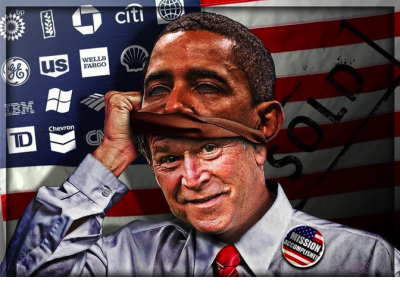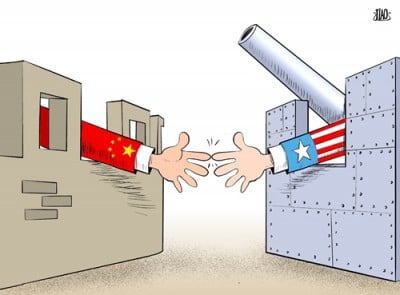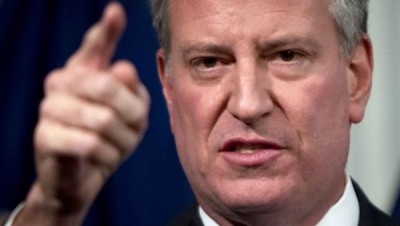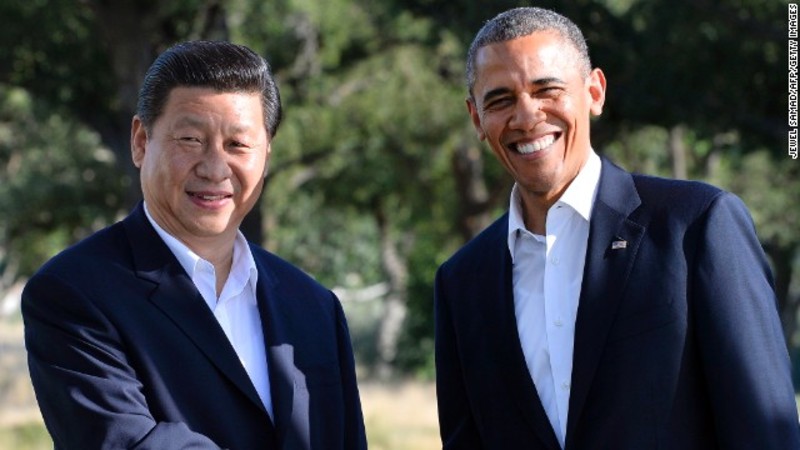

 |
| By Mel Gurtov >http://www.globalresearch.ca/chinas-triangle-diplomacy/5421356 |
 |
Another element in this “live and let live” moment in US-China relations is Xi’s renewed emphasis on soft power and promotion of China’s unique approach to international affairs. In a recent speech to a party work conference on foreign affairs, Xi proposed “six commitments” or “persistents” (liuge jianchi: 六个坚 持): peaceful coexistence, an end to great-power domination, opposition to the use of force and intervention, “win-win” approaches to international issues, aid to developing countries, and “never sacrificing the country’s core interests.”To be sure, these are standard Chinese foreign-policy themes of recent years. What is significant is that they are now presented as “China’s special characteristics for great-power foreign policy,” according to the foreign ministry. It is Xi’s way of proclaiming that China, far from accepting junior-partner status with the US in international affairs, has its own doctrine in the competition for regional and global influence. China’s forceful assertion of its interests in the South and East China Seas shows that it intends to back doctrine with power.
On the other side of the triangle, China and Russia appear to be moving ever closer. In May, Putin and Xi concluded a huge gas deal between their national oil companies—worth $400 billion over 30 years—as part of a large trade package. Russian gas that might have gone westward to Europe will instead be moving over about 2500 miles of pipeline to China. Their overall trade is climbing rapidly, and is expected to reach $100 billion by the end of 2014. Their militaries have carried out joint exercises, the two countries cooperate to combat ethnic “terrorists and separatists” on their common border, and they have compatible policies on North Korea, Iran, and Ukraine that run against US and European Union calls for escalating sanctions. As one astute observer, Gilbert Rozman, puts it, “Leaders in Moscow and Beijing want to avoid allowing chauvinistic nationalism in either country to trump their mutual national interest in minimizing the influence of the West in their respective regions”.
But appearances can be deceiving here: China and Russia have plenty of tensions that stem from past conflicts as well as present-day issues. China’s huge economic advantage over Russia, a dramatic change from the Soviet era, surely arouses Russian concerns. Russia’s interventions in its so-called near abroad, such as Georgia and Ukraine, may prompt Chinese memories of border clashes and Russian “great-power chauvinism” no matter what Beijing says publicly. And China’s notion of an Asian order doesn’t leave room for Russia except as a junior partner. On the Russian end, even though Putin is looking east for new trade deals, the fact remains that trade with the EU is worth more than five times as much as trade with China: $263 billion versus $59 billion in the first half of 2014.
In a word, notions of a new Sino-Russian entente that spells trouble for the US and its allies seem overblown. Beijing and Moscow are more united by what they oppose—namely, aggressive US foreign policy—than by a common agenda. Neither China nor Russia has powerful allies, so Xi and Putin mute their criticisms and trumpet their ties—two authoritarian regimes that are busy clamping down on domestic dissent. Nevertheless, as US conduct of the strategic triangle in Nixon’s time showed, diplomacy is almost inevitably uneven with respect to the two other sides of the triangle. Then, US relations with the USSR were far more important to Washington—but also more hostile—than relations with China. Today, China’s relations with the US are far more important to Beijing than relations with Russia, as evidenced by China’s deep regional and global involvement in the capitalist order, of which huge commercial and financial ties to the US are a major part.
Japan figures prominently in China’s triangular diplomacy. During the November summit of the Asia-Pacific Economic Cooperation (APEC) forum in Beijing, Xi Jinping met briefly with Abe Shinzo—a small breakthrough in China-Japan relations inasmuch as the Chinese had previously rejected such a meeting unless Japan acknowledged that their territorial dispute is in fact a dispute. Out of that meeting came a four-point agreement to promote mutual confidence and restore dialogue. () The two sides sidestepped the territorial dispute by acknowledging “different viewpoints” on the issue. More concretely, they agreed to set up a mechanism to avoid maritime conflicts in the East and South China Seas. China showed its reasonableness when dealing with a potentially dangerous situation—a confrontation with Japan at sea that has seen several close calls between vessels in recent years.
Xi probably welcomed Abe’s post-meeting comment that China and Japan “need each other” and are “inseparably bound together.” Since then, in a sign that high-level Sino-Japanese diplomacy has indeed resumed, a senior Japanese advisory group, the 21st Century Committee for China-Japan Friendship, visited Beijing on December 4 and met with two top officials, including Premier Li Keqiang. Full-fledged normalization of relations is still to come, however, as the Chinese repeated the position that the history issue is an obstacle the Japanese would have to overcome for relations to improve significantly.
Strategically for Beijing, the four-point agreement may be an effort to neutralize US expressions of support for Japan’s sovereignty over Diaoyudao/Senkaku. Beijing would like nothing better than to weaken Japan-US ties while Abe, a right-wing nationalist out to restore a prominent place for Japan in world affairs, is in power. And he will be, for another four years, thanks to an electoral victory December 14 for Abe’s Liberal Democrats. Despite his unpopularity, and the lowest level of voting in Japan’s postwar history (about 52 percent), the LDP will have 291 of 495 seats in the lower house of the Diet.
Economically, Beijing would no doubt like to see Japanese trade with and investment in China recover. In 2013, Japan’s trade with China fell by double digits for a second straight year, mainly because Japanese exports dropped by around 10 percent. Japanese investment in China showed the same two-year decline, falling in the first half of 2014 by nearly half of the comparable 2013 figure.
Meanwhile, Abe has several major domestic challenges now that the parliamentary elections are over. He needs to shore up the economy, now technically in recession, overcome opposition to restarting nuclear plants, and decide whether to pursue revision of the constitution’s Article 9 so as to legitimize the military’s participation in “collective defense” missions. He must also oversee what appears to be an officially sanctioned assault on liberal intellectuals and peace groups (see Jeff Kingston, “Extremists Flourish in Abe’s Japan,” Asia-Pacific Journal.) In short, Abe needs a period of calm in relations with China, not a confrontation. But if he uses his electoral victory to push a neonationalist agenda, the calm will not last.
Abe’s economic woes remind us that the foreign policies of states do not take place in a vacuum. Domestic problems invariably complicate and to some extent shape what national leaders do, or attempt to do, abroad. Right now, China’s leaders are dealing with a slowing of the economy, notwithstanding over 7 percent GDP growth. Xi is cracking down on dissent; a growing number of journalists, lawyers, prominent members of Uighur and other ethnic minority groups, and intellectuals are being jailed for supposedly subversive activities, with no promise of a quick, much less fair, trial. Official corruption is also a Xi target as he seeks, but not very credibly, to pose as a champion of justice by making an example of a few high-profile party officials and former officials. In Russia, Putin’s bravado is popular, but the economy is in freefall, in part due to EU and US sanctions. The US economic picture looks strong in comparison to these others, but Obama faces a rocky two years of divided government and constant political battles.
What all these problems add up to is the enduring lesson that leaderships need to spend time and resources dealing with the home front, which often constrains what they can accomplish abroad. China, Russia, Japan, and especially the US will have to tread more carefully abroad, avoiding confrontations with each other. That picture may help explain why China is now conducting triangular diplomacy with a “softer” touch, particularly when it comes to the United States and Japan. How long that will last is another matter.
Mel Gurtov is Professor Emeritus of Political Science at Portland State University, Oregon, Editor-in-Chief of Asian Perspective, and an Asia-Pacific Journal associate. His most recent book is Will This Be China’s Century? A Skeptic’s View (Lynne Rienner Publishers).
>http://www.globalresearch.ca/chinas-triangle-diplomacy/5421356
by Özge Özçelik
Many Jews around the world maintain a critical stance against Zionism. As one of those people, Professor Yakov M. Rabkin,
expresses his views about the issues of anti-Semitism, coexistence in
the Middle East and Jewish perspectives on the state of Israel. This
article was originally published in the Daily Sabah.
On March 2, 2014, hundreds of thousands of Haredi (ultra-orthodox) Jews came together in Jerusalem. They protested against an amendment to the Israeli conscription law that would no longer exempt students of the Torah from compulsory military service. The new law puts in doubt an entire system of agreements made between David Ben-Gurion, the first Prime Minister of Israel, and non-Zionist Haredi rabbis in 1948. Ben-Gurion, convinced that Judaism would die out, was buying time and trying to calm down the rabbis’ opposition to the Zionist state. Ben-Gurion’s prediction has proven wrong. More than a million Israelis now consider themselves Haredim, and they remain aloof from the country’s secular majority. The demonstration last March was not the first such confrontation between Haredi Jews and the State of Israel.
Yakov M. Rabkin, a Soviet-born Jew who has taught at the University of Montreal in Canada for over forty years, has critically analysed the relations between Zionism and Judaism, and between Jews and the State of Israel. In his academic work, he dispels confusions about Zionism and Judaism, and investigates relations between Zionism and anti-Semitism. While teaching contemporary Jewish history he has studied Judaism with rabbis in Montreal, Paris and Jerusalem. He has also carried out academic studies on the history of science and technology, Jewish history, and has been active in interfaith dialogue.
His 2004 book, “A Threat from Within: A Century of Jewish Opposition to Zionism,” grabbed worldwide attention and has been translated into a dozen of languages, including Hebrew and Turkish. In the book he sheds light on the rejection of Zionism on the part of most prominent rabbis of the past one hundred and fifty years.
A brief history of Zionism
It is crucial to know what Zionism really is in order to comprehend all debates for and against it. That is why Rabkin begins by defining Zionism: “Zionism is an attempt to gather Jews in the Holy Land by political, physical means.” And shortly after, he outlines the birth of Zionism as a political ideology. Secularization and nationalism in Europe, particularly in Eastern Europe, enabled thousands of European Jews to embrace Zionism, leaving behind their commitment to Torah and its commandments. It is these “secular Jews” who unilaterally declared the independence of Israel in 1948, and have largely governed the country ever since.
It was Theodor Herzl, a Budapest-born Jew profoundly estranged from Judaism, who is considered the father of modern political Zionism. He formed the World Zionist Organization and promoted Jewish migration to Palestine with the purpose of forming a Jewish state. Rabkin emphasizes the Eastern European, particularly Russian, influence on Zionism. “This Eastern European influence is still very strong in Israel. All the prime ministers of Israel without exception were either born in the Russian Empire or come from parents who were born in the Russian Empire. They all come from little towns, none of them come from big cosmopolitan cities like Paris, Saint-Petersburg or Istanbul. No wonder they recreated a ghetto in the Holy Land.”
The original idea of physical, material gathering Jews in Palestine is of Protestant Christian origin. After two centuries of rather marginal existence, this idea gathered momentum in mid-19th century. While still unknown to the Jews, it penetrated the corridors of power in London as it dovetailed with British imperial policies, looking for a reliable foothold in the Middle East. And it was only 50 years later, by the end of the 19th century, that Zionism acquired first adepts among some Jews in Eastern Europe. It is this small minority of Jews that became the pioneers of a new state in the Middle East. This secular minority had no use for Judaism and its moral values, it was determined to act. Rabkin says: “Jews, including myself, pray three or four times a day for the return to the Holy Land. But praying for something and actually taking it from its owner are two different things.”
All Jews hold different opinions
Quite a few people believe that all Jews are Zionists. This is a cardinal belief of the Zionists, who claim to be “the vanguard of the Jewish people”. This confusion between Jews and Zionists is a political misconception and a source of danger. Some Muslim and other media blame local Jews for the way Israel treats Palestinians. This is not only unfair because local Jews have zero influence on Israel’s policies. It is also ironic because those very media that claim to be opposed to Zionism have in fact become purveyors of the Zionist ideology that conflates Jews and Zionists, local Jewish communities and the State of Israel.
“Israel calls itself a Jewish state and claims to belong to all the Jews of the world. But most of the Jews of the world prefer to live outside of Israel. And apparently, about a million Israelis also live outside of Israel.”
Are those who oppose Zionism anti-Semitic?
Criticism of Israel is often confused with anti-Semitism. Indeed, quite a few anti-Semites criticize Israel. But the protagonists of Rabkin’s book are most prominent rabbis of the last century, and nobody would call them anti-Semites. This is why the book has attracted so much attention around the world. Some people are unhappy that the book sheds light on the fundamental differences between Zionism and Judaism. They would rather silence this whole issue. But Rabkin believes that intellectuals must explore such issues even if they go against the current. “Let me tell you an old Jewish story. When one does not know if the fish one has bought is dead or alive, one must put it in a stream. If it swims against the current, this shows it is alive”.
European nationalism: Parallelism between Turkey and Israel
The emergence of nationalism in Europe in the 19th century transformed many countries on the continent and rebuilt them with new secular, national identities. According to Rabkin, such a historic transformation constitutes a common ground for Turkey and Israel in terms of building new secular identities, language reform and regional issues.
He points out that “Ottoman identity was not a national identity just like Jewish identity is not a national identity.” Another parallel between Turkey and Israel, Rabkin adds, is the stance of their first leaders, Mustafa Kemal Atatürk and David Ben-Gurion, respectively. “The perception of Atatürk and the perception of Ben-Gurion was nearly the same. For them, religion is a thing of the past. … For Ben-Gurion, religion was to die away within a generation or two. However, it did not happen this way, and the numbers of religious Jews keep growing. Turkey also has known a movement back to Islam.”
Old Yishuv: Coexistence in the Middle East
Jews have lived as a minority for millennia. In Christian lands they experienced a lot more persecution than under Islam. In the Ottoman Empire, including the Holy Land, Jews, Muslims and Christians lived together in relative harmony. For Jews, Istanbul was the most peaceful corner of Europe for many centuries. This coexistence must continue.
Zionism aimed at and succeeded in building up a Jewish majority in Israel/Palestine, which engendered the century-old conflict. But Rabkin is quite hopeful about prospects for peace: “I am an optimist, even though peace will require tremendous efforts. I believe that there can be no peace without justice. Economically and politically, the Palestinians today are much weaker than the Israelis. Stability demands balance. Many Palestinians lost their houses, their lands since 1947, and they ought to be compensated for lost property. For instance there was a Palestinian village where the campus of Tel Aviv University stands today. Nobody suggests to rebuild that village, but its former residents and their heirs must be compensated.”
Rabkin also published a book this year, “Comprendre l’Etat d’Israël” (Understanding the State of Israel), which offers a new perspective on the Israel-Palestine conflict. And always as a swimmer against the current, his new book should bring a new breath to our understanding of Israel. >http://www.globalresearch.ca/what-if-a-jew-swims-against-the-stream-of-zionism/5421318 By Global Research News Daily Sabah<
How come the bad guys keep getting away with it … even after getting caught again and again?
Reason Number 1: Falling for the Big Fib
As Adolph Hitler wrote in Mein Kampf:
All this was inspired by the principle–which is quite true in itself–that in the big lie there is always a certain force of credibility; because the broad masses of a nation are always more easily corrupted in the deeper strata of their emotional nature than consciously or voluntarily; and thus in the primitive simplicity of their minds they more readily fall victims to the big lie than the small lie, since they themselves often tell small lies in little matters but would be ashamed to resort to large-scale falsehoods. It would never come into their heads to fabricate colossal untruths, and they would not believe that others could have the impudence to distort the truth so infamously. Even though the facts which prove this to be so may be brought clearly to their minds, they will still doubt and waver and will continue to think that there may be some other explanation. For the grossly impudent lie always leaves traces behind it, even after it has been nailed down, a fact which is known to all expert liars in this world and to all who conspire together in the art of lying.Similarly, Hitler’s propaganda minister, Joseph Goebbels, wrote:
That is of course rather painful for those involved. One should not as a rule reveal one’s secrets, since one does not know if and when one may need them again. The essential English leadership secret does not depend on particular intelligence. Rather, it depends on a remarkably stupid thick-headedness. The English follow the principle that when one lies, one should lie big, and stick to it. They keep up their lies, even at the risk of looking ridiculous.Science has now helped to explain why the big lie is effective. http://www.globalresearch.ca/seven-reasons-why-the-bad-guys-keep-winning/5421355
[SIDEBAR:
Of course the Chinese and the Russians and the United States of America as the "Senior Partners In Earth Doing THE TRIANGLE," must get along. The West isn't going to get away with the doctrine that ran the past in THE MANIFEST DESTINY, which George Washington decided, too.
China and Russia are authoritarian far more than the U.S.A. was. The USA decided to be more authoritarian and managed this style of tyranny via the PENTAGON and Heinz Kissinger and his mentor in charge of the Pentagon, Fritz Kraemer. Homo Sapiens are nuts, all. When the planet is earth and there is no other place the Homo Sapiens [Humans, Human Beings] can go but here in the earth's nature, then we must all learn to get along and not just the SENIOR PARTNERS of the countries that are not fully transparent with the people [Humans] slaves that are the commodity that is FLESH TRADE.
Very-very-very-beyond coarse-dense-gross, vibration. I choose CHINA AND RUSSIA AND ALL 'FOREIGN' COUNTRIES TO NOT ENSLAVE ME! In two words: CHI FLOW.
Messers Putin, Xi, Et Al. America was supposed to be the enlightenment to the unenlightened. That can still happen, BUT the acting like honoring such as, U.S. Constitution, Second Article: >>http://www.law.cornell.edu/constitution/articleii IN 2000, THE U.S. CONSTITUTION WAS FULLY VITIATED, Bush v. Gore via the Supreme Court. Then with the Obama coup, the obvious.
Thus, as old fashioned as that GODDAMN PIECE OF PAPER is, there is certainly good law to be practiced.
Second Amendment - U.S. Constitution - FindLaw
constitution.findlaw.com › U.S. Constitution
Second Amendment
- Bearing Arms Amendment Text | Annotations A well regulated Militia,
being necessary to the security of a free State, the right of the
people ...
We do not need factions which are not in honor of our good law. The U.S. Constitution globalization game is the CONTRACT to participate in the authoritarian practices that were to emulate the USA.
However, the game was changed when the internet and all the power of the unseen energies reached the point of more than fifty percent (50%), Hundredth Monkey wasn't theory.
China uses the U.S. PETRO $ to do what China has been doing, in ITS' "Manifest Destiny". Russia has also used the PETROUS$ against the US. What country can't use the so-called American Money, to purchase just as America purchases, the world earth. Clearly that was and is, not other than to be expected.
Americans have to get cultured as though pearls of wisdom and that was and is our good law, U.S. Constitution protects our BUNDLE OF RIGHTS' and not the opposite.
Citizens' lawyers is missing, the strong Militia is also missing - MILITANT POLICE DO NOT PASS THE CONSTITUTIONAL MUSTER, and of course the DIGITAL CREDIT which all countries operate the government businesses ... MIA ...
TIME TO RISE CHINESE AND RUSSIAN CHI FLOW AND AMERICA YES INDEED
... to be continued ... ?]

Second Amendment United States Constitution: NYPD ET AL
ReplyDelete